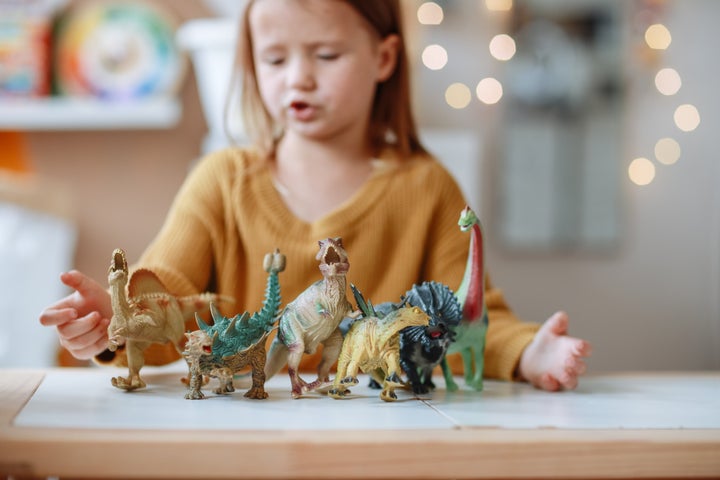When people ask me if I have any siblings, as soon as I answer “no,” they often assume a lot about my personality just because I’m an only child. Lonely, spoiled, selfish and bossy are some of the most common only child stereotypes that have persisted for years — even though they have been debunked time and time again.
“The stereotype is so ingrained in our society … like ageism, sexism and negatives about different cultures,” said Susan Newman, a social psychologist and author of the upcoming book “Just One: The New Science, Secrets & Joy of Parenting an Only Child.” “[These stereotypes] get burned into our fabric, and it’s very hard to get them to go away. [Even] when all the science supports that these myths don’t hold up.”
In fact, a recent study found that growing up as an only child actually has positive effects on mental health, life satisfaction and other factors.
Additionally, because the single-child family structure is now the fastest-growing family unit in the United States, there’s no better time to dispel these long-standing myths.
We talked to psychologists about positive traits of only children that aren’t well-known — and how much not having siblings really affects personality.
First of all, why do these only child stereotypes exist?
These have been around since the late 1890s, Newman explained. Early research highlighted these negative viewpoints about only children, but they were later found to be false because the studies were flawed.
According to Newman, the “ideal family size” was two kids.
“That was the 1950s [way of] thinking and before,” Newman said. “But history has shown that family size is purely personal and that these myths about only children do not stand up to solid research.”
Also because of several modern factors, such as women working and having kids later in life, the cost of raising kids and child care, and climate change, more and more people are choosing to have just one child, Newman said.
Trait No. 1: They know how to be social yet are also comfortable with alone time.
Many people assume “if you grew up without siblings that you will inevitably become [a] lonely person throughout your life,” said Toni Falbo, an educational psychology professor at the University of Texas at Austin. “And there’s just no evidence that that’s true.”
While only children don’t have siblings to hang out with, they often get to spend more one-on-one time with their parents, she said.
Plus, there are plenty of opportunities for kids to socialize from a young age, such as day care, school, playdates and extracurricular activities.
Frazao Studio Latino via Getty Images
While only children may have more alone time than kids with siblings, Newman said, parents don’t need to view this as a negative.
“Alone time is actually healthy,” she explained. “It encourages creativity, and it allows children to learn how to fill their time on their own.”
For example, they may journal, practice a hobby, read or invent their own stories or games, said Ann-Louise Lockhart, pediatric psychologist, parent coach and owner of A New Day Pediatric Psychology.
“While many people struggle with being alone, only children tend to see solitude as an opportunity for reflection, rest or productivity,” she said.
Trait No. 2: They are incredibly loyal in their relationships.
“Only children often form very tight bonds with friends and chosen family members,” Lockhart said. “Without siblings built into their inner circle, they understand the importance of maintaining [these] meaningful connections.”
A lot of only children look at their friends as “surrogate siblings” and keep these friendships for decades, Newman added.
“As an adult, [an only child is] often the friend who shows up consistently — the one you can always count on in good times and bad,” Lockhart said.
Trait No. 3: They have a strong sense of independence.
People may think that only children “lean on their parents for everything, and that’s not the case,” Newman said. “Only children are exceedingly independent.”
Because they don’t have siblings, they likely have more opportunities to problem-solve by themselves and become more self-reliant, Lockhart explained.
“As a child, [they] might be comfortable playing independently for long periods … [and] as an adult, they may confidently plan solo trips, start businesses or tackle new skills without needing external validation,” she said.
Trait No. 4: They learn advanced communication skills early on.
Only children tend to spend a lot of time with their parents, so they become used to relating to adults from a young age.
Parents “don’t dumb down their conversations as much as they would talking to a lot of children all at once,” Falbo added. “The vocabulary acquisition and use of various linguistic skills becomes modeled, practiced and encouraged in one-child households.”
Singletons may feel just as comfortable talking to teachers and other grown-ups in their lives as they do to their peers, Lockhart explained.
“Later in life, this can translate into strong leadership abilities, public speaking skills or ease in professional environments,” she said.
Trait No. 5: They’re open to new ideas and experiences.
In a January 2025 study, only children reportedly showed more openness than children with siblings. In other words, they may be more willing to try out something new, Falbo said.
So why do they tend to have this trait? Parents of only children often have more time and don’t have to be as prohibitive when they have one child, she said.
“If you have no siblings, [you] may be able to explore a little bit more, push a few boundaries,” Falbo said, “because parents aren’t as stressed about trying to control a large group of kids.”

Natalia Lebedinskaia via Getty Images
Trait No. 6: They’re more similar to other kids than a lot of people think.
“Because there’s such a strong belief that only children are different from other people … the fact that [we] don’t find them to be different is kind of a blessing right there,” Falbo said.
There are other factors that actually affect personality more than the number of siblings you have, Newman said, such as genetics and parenting style.
“It’s much more [about] how parents model for their kids,” she said. For example, empathy, generosity, being responsible and standing up for others are traits that kids often learn from their parents.
“No family size is particularly better than another,” Newman said. “If a parent is happy, it’s likely they will raise a happy child.”
Read the full article here








